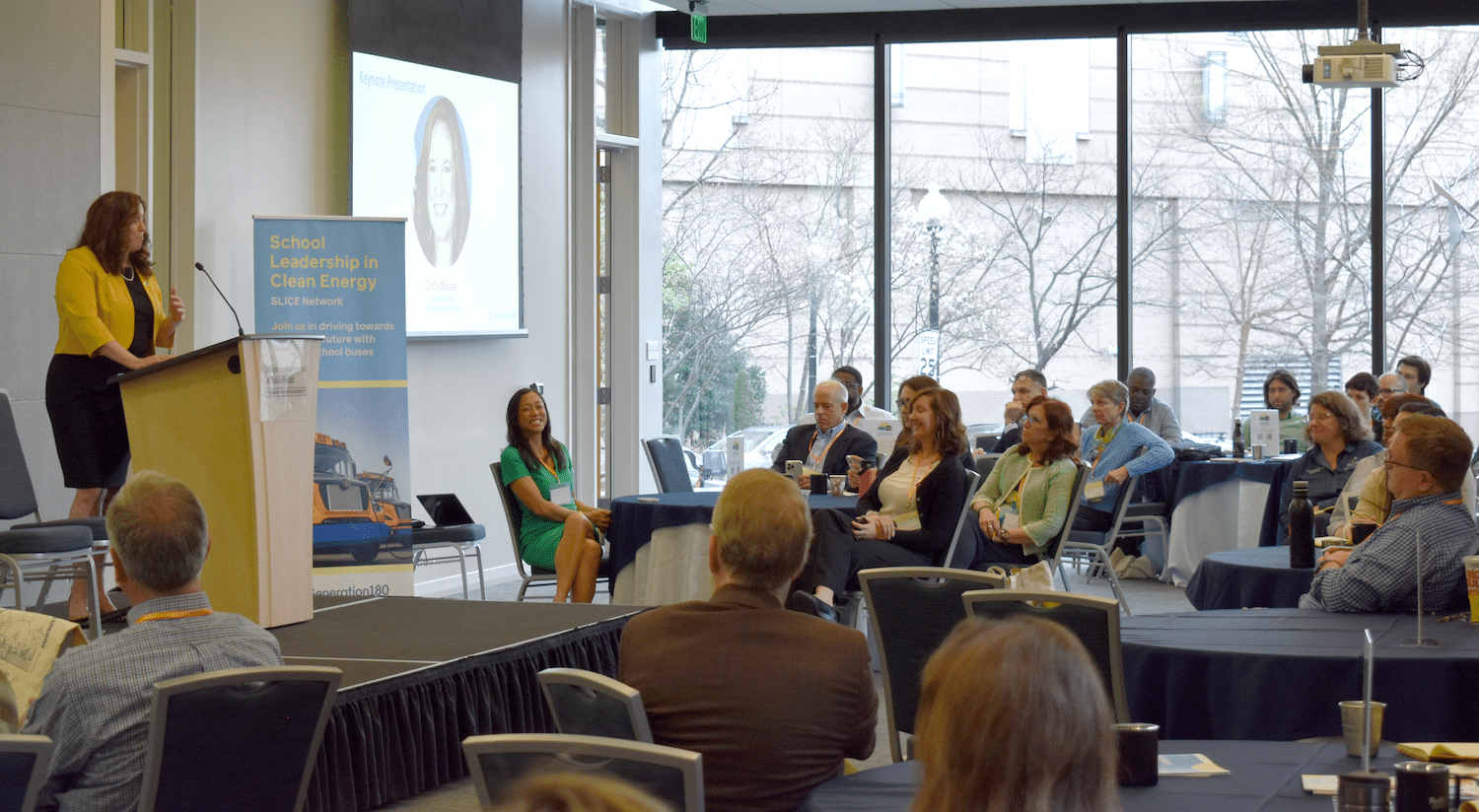Generation180 hosted the first Clean Energy Schools Symposium in Washington DC from March 26-28, 2023. This was the first in-person convening of its School Leadership in Clean Energy (SLICE) Network, which is comprised of school decision makers who have flipped the switch to clean energy at their schools and are actively inspiring and supporting other schools across the country to do the same. Thanks to the generous sponsorship of FedEx and World Resources Institute’s Electric School Bus Initiative, Generation180 provided scholarships for over 50 education leaders, representing 38 school districts from across 16 states, to attend the event. The symposium spotlighted the impact of the education sector as a force towards a clean energy future by showcasing the nation’s most innovative school success stories and by discussing the potential impact of the education sector with top leaders in the U.S. Department of Energy and U.S. Department of Education.
During the symposium, the attendees deepened their knowledge and capacity for change by engaging with industry experts on building decarbonization, energy storage, and new federal funding opportunities for clean energy projects. The school leaders were guided through a comprehensive planning process for the electrification of school bus fleets by our partner Center for Transportation and the Environment, and they enjoyed a demonstration ride on an electric school bus that toured them around national landmarks in DC. The event also enabled the exchange of knowledge and experience amongst education professionals in a variety of roles who are leading on clean energy. At the end of the symposium, the attendees were asked to reflect upon what they learned and to challenge themselves with a new clean energy goal for the upcoming year.
The top takeaways for school leaders were:
1. Schools have the power to affect energy consumption in the U.S.
Acting Assistant Secretary of the U.S. Department of Energy, Alejandro Moreno, kicked off the symposium by expressing the impact that the education sector can have by switching to renewable energy. He explained that “[education buildings] are the 2nd highest consumer of electricity and the highest consumer of natural gas in the commercial building sector.” He remarked that since K-12 schools educate approximately 50 million schools, it is understandable that they have huge energy footprints. However, he saw this as an opportunity.
”Together as an education system, you have a huge opportunity to affect energy consumption in the U.S.,” said Alejandro Moreno. In addition to reducing energy consumption, he explained that by switching away from fossil fuels and electrifying the buildings, schools can leverage their collective procurement power to influence the deployment of more clean energy on the grid.
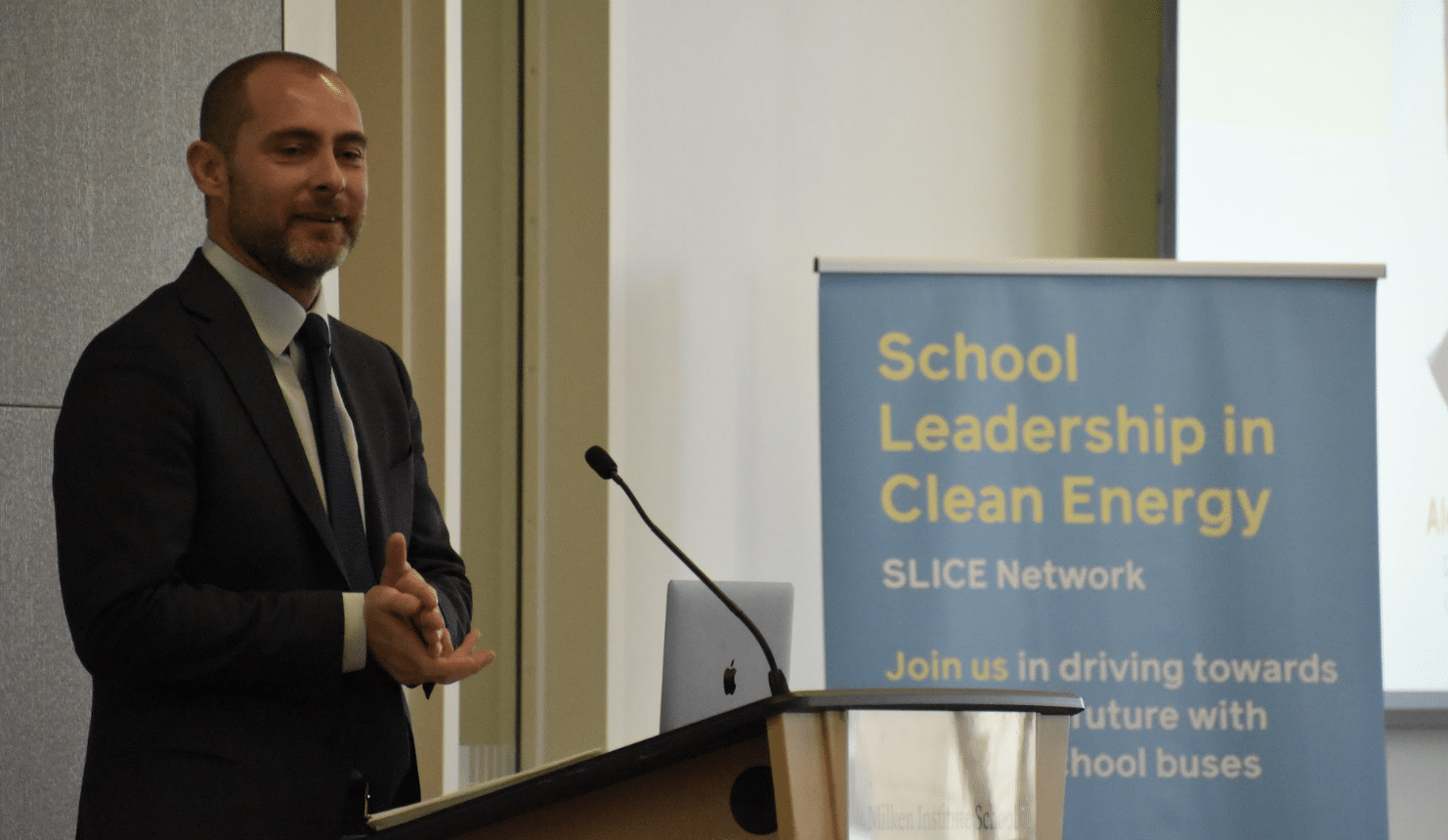
2. Planning for success empowers school districts
In addition to the compelling keynote presentations, the Symposium featured speakers from experts in the clean energy industry, federal government, and nonprofit sector. The first day targeted topics related to building electrification, battery storage, and financing clean energy projects. Speakers from the U.S. Environmental Protection Agency and the Department of Energy spoke about the many new federal funding opportunities available to schools to advance clean energy. Several school leaders shared their own clean energy stories, offered lessons learned, and created a dialogue on how to navigate relationships with stakeholders in the community, local government, and utilities.
The attendees had the chance to apply what they were learning in real time by collaborating with experts and their peers to problem solve and discuss the unique challenges within their own districts. Attendees remarked that having the dedicated time and space to strategize and plan for implementation of their districts’ goals available was valuable. They left feeling renewed in their ambitions for transitioning their district to clean energy.
It was by far the most informational event that I have attended. It focused on economics, how to get it done, while the bonus was sustainability and resiliency.
– Trevor Vuono, Energy Manager, Virginia Beach City Public Schools
3. Schools can raise the bar for climate action
The U.S. Department of Education Deputy Secretary, Cindy Marten, wrapped up the first day of the symposium by recognizing the audience for raising the bar on school infrastructure and sustainability, in line with the department’s Raise the Bar: Lead the World call to action. She acknowledged their role in providing access to equitable, safe, and healthy learning environments and the value their work brings to communities.
Deputy Secretary Marten said, “We have an opportunity now. It is the sustainability movement that is taking up the twin challenges of our lifetime: the future of our youth and the future of our planet. The same is not going to be good enough. Our children and our grandchildren definitely deserve better…With every clean school bus, with every solar installation, with every green school yard, and with every water or energy efficiency measure that you are doing, every one of those actions makes a statement about what we believe in and how we care about our schools, our communities, and our students…It is time to put an end to the historic underinvestment in school infrastructure. It is time to offer real-world learning through the school building and grounds.”
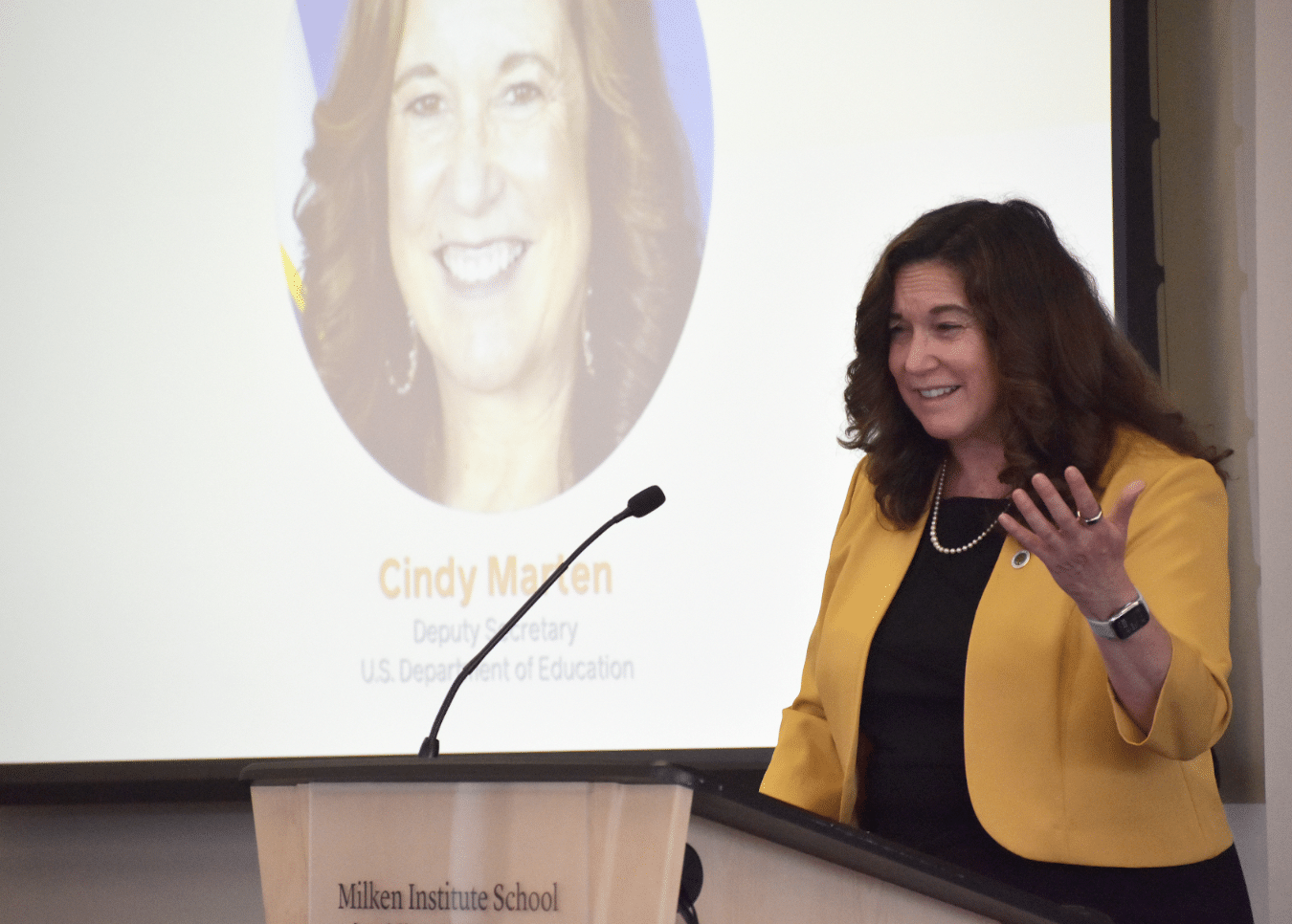
4. Electrifying school transportation fleets takes a village
The second day of the symposium, co-hosted by the Center for Transportation and Environment (CTE), enabled attendees to dive deep into the logistics of electric school bus (ESB) deployment and transition planning. The day featured a powerful discussion with panelists representing different facets of the fleet transition, including a utility, school district, and school transportation service provider. Attendees were also given the opportunity to submit data on their district’s fleet and receive individualized analysis on their transition.
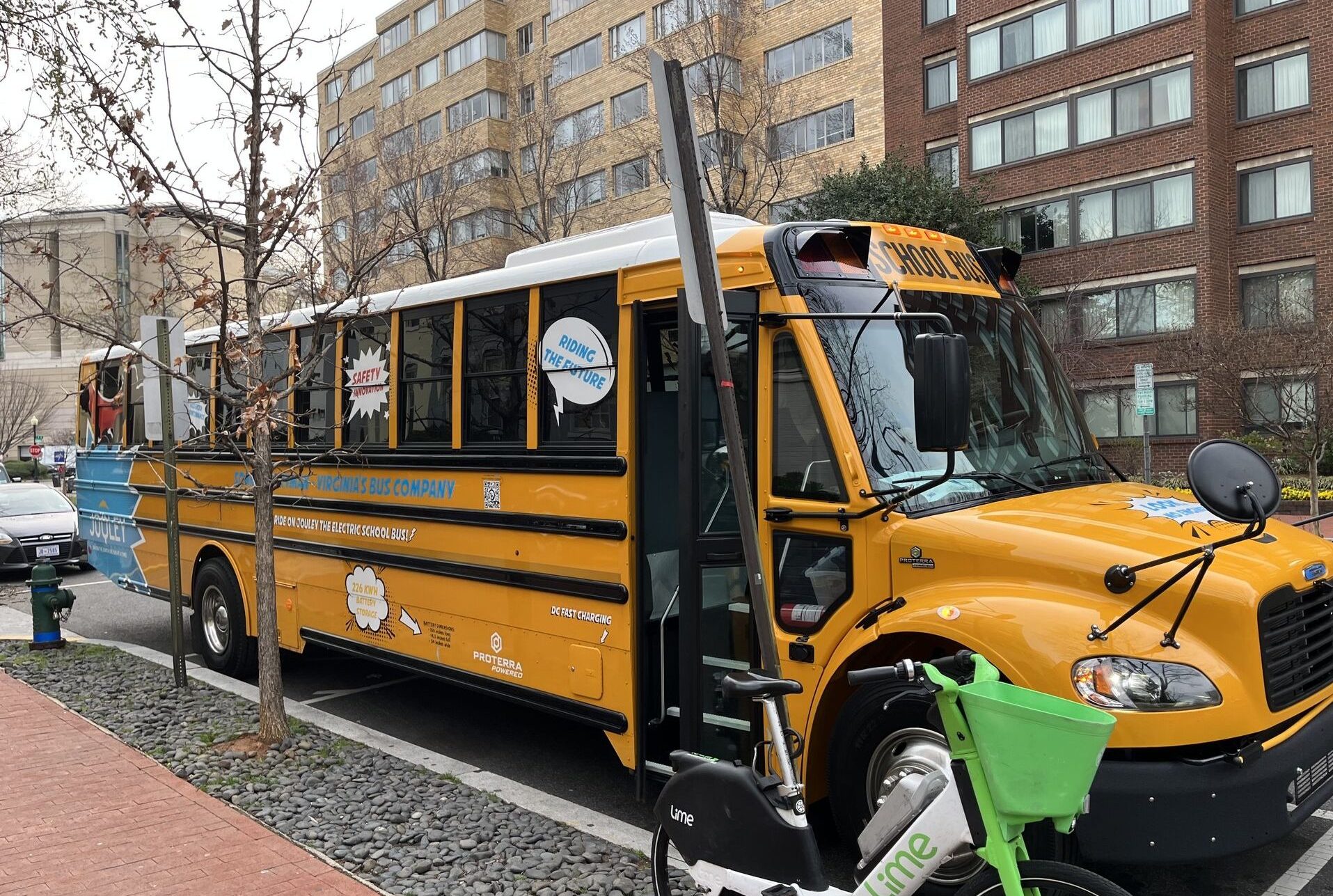
I was highly skeptical electric buses and batteries were even possible with large school districts and Generation180 turned me into a believer it can and will be done!”
– Trevor Vuono, Energy Manager, Virginia Beach City Public Schools
Throughout the day, the district attendees discussed the many aspects and nuances of electrifying school transportation fleets with transportation experts and their peers. As the transition to electric school buses is still nascent, the connections leaders made will support them as they move forward in their own communities. Attendees shared that these conversations steered them in a positive way to begin pursuing ESB’s.
Best of all, I made some connections with folks that pointed out the nuanced aspects of school bus fleet conversion.
– Bryant Shaw, Sustainability Manager, Dallas Independent School District
5. Electric school buses rock, but not loudly
The event also featured a ride on an electric school bus that toured attendees around the DC monuments and provided a view of the iconic blooming cherry blossoms. For many attendees, it was their first experience with an electric school bus, which was generously provided by Sonny Merriman, a bus company in Virginia. The school leaders were able to explore what was under the hood and breathe easier without any black clouds coming out of the back. One transportation director was sold on the electric school bus after he felt how quickly the bus accelerates from a stop. Afterwards, those who took the ride shared their biggest takeaway from riding in an ESB: how quiet the bus was while running!
It was great being able to experience the bus for myself and see how I could picture it at my own school district.
– Symposium Attendee and SLICE Network Member
6. Authentic connections inspire action
Generation180 surveyed members from the SLICE network prior to the event to understand what they wanted most out of an in-person event. Their feedback overwhelmingly indicated the need for time and space to connect with their peers. The agenda was well balanced to incorporate unstructured time for school leaders to meet and speak freely about their communities, which was well received.
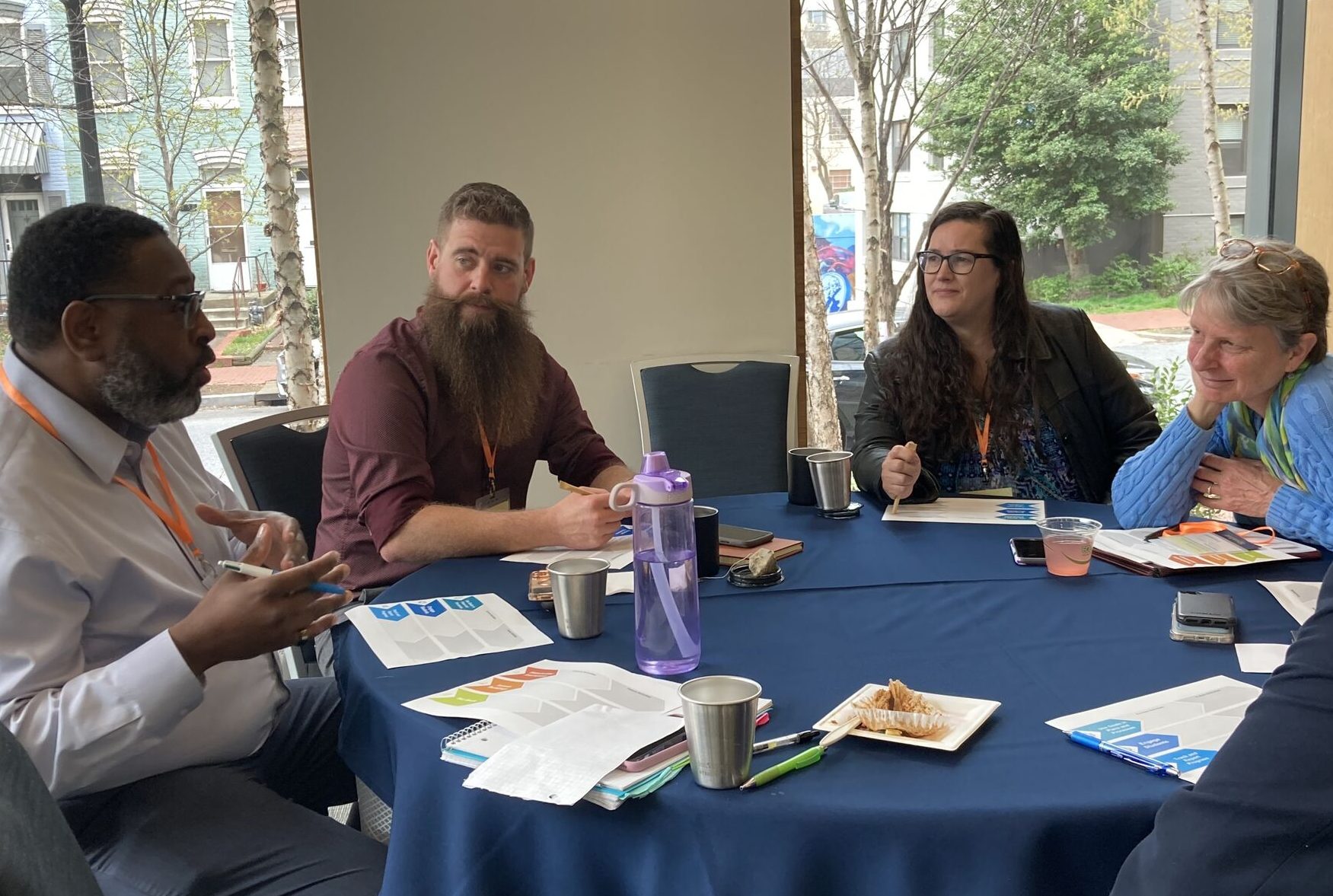
Attending school leaders left the event with an arsenal of resources but more importantly, a network of peers who support their work. Afterward, the feedback overwhelmingly indicated this was the most inspirational aspect of the event for the school leaders and the need for these trailblazers to connect was great.
Having the opportunity to meet my colleagues across the country and hearing what they are working on helps me develop ideas of what to tackle next.
– Jackie Hayes, Assistant Director of Contract Operations and Fleet, Boston Public Schools
Interested in learning more about or SLICE Network?
Generation180 is proud to support and equip school leaders in their pursuit for transitioning our schools to clean energy. Through the SLICE Network, Generation180 will continue to support these school leaders through quarterly network meetings, a monthly newsletter, and regular storytelling.
If you or someone you know may be interested in joining the SLICE network, learn more and nominate a leader here.












